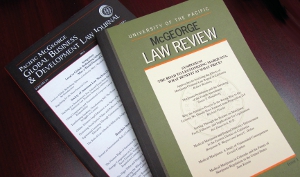Document Type
Article
Publication Date
2013
Abstract
In light of the fact that the majority of Americans consider their personal residence one of their most important investments, as well as the rapid changes in technology allowing an increasing number of Americans to work from their personal residence, this article reconsiders the non-applicability of Internal Revenue Code (“I.R.C.”) section 1031 to a residence occupied by the taxpayer. I.R.C. section 1031 provides that gain or loss will not be recognized if property held for a business or an investment purpose is exchanged for property of like kind to be held as business or investment property. For this nonrecognition provision to apply, the property relinquished and the property received cannot be held for personal use at the time of the exchange. This article provides an overview of the current state of federal income tax law as it relates to personal residences. It then considers the application of I.R.C. section 1031 to property that is held as a personal residence at the time of the exchange, or was held in the past or would be held in the future as a personal residence. The interrelationship of I.R.C. section 1031 with other sections of the I.R.C. that exclude gain on the sale of a principal residence and control the tax treatment of home offices and vacation homes will also be explored. Finally, the article illustrates that while the rules limiting deductions for personal-use properties should remain in force, nonrecognition treatment under I.R.C. section 1031 should be extended to personal residences.
Publication Title
Wake Forest J. Bus. & Intell. Prop. L.
Volume
14
First Page
62
Recommended Citation
14 Wake Forest J. Bus. & Intell. Prop. L. 62



